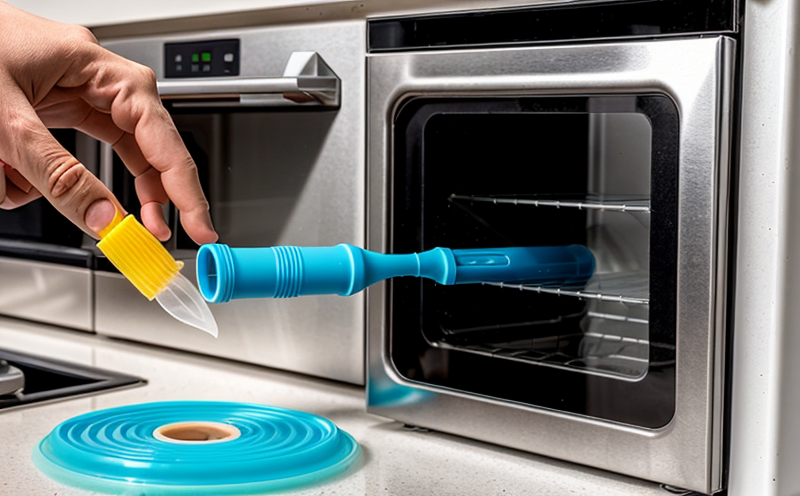EN 13432 Biodegradability Testing of Household Plastics
The European Standard EN 13432 specifies the requirements and test methods for biodegradable plastics used in packaging. This standard is pivotal for manufacturers, quality managers, compliance officers, and R&D engineers aiming to ensure that their household plastics meet stringent environmental standards before they enter the market.
Biodegradability testing under EN 13432 involves a series of rigorous procedures designed to assess whether plastic materials can break down into carbon dioxide, water, and biomass by microorganisms. This process is critical for sustainable product development in household plastics, ensuring that products decompose within industrial composting conditions.
The testing protocol begins with the selection of appropriate specimens which must be representative of the material composition intended for use in packaging. Specimens are then subjected to a series of tests aimed at simulating real-world conditions such as temperature and humidity. The key parameters include:
- Biodegradation rate: Measured by the mass loss of the specimen after incubation under controlled composting conditions.
- Biodegradation end point: Determined by assessing whether the remaining material is biodegraded to an extent that meets the standard's criteria.
- Composting temperature and time: Specified in EN 13432, these parameters ensure compliance with industrial composting facilities.
After completion of the test period, specimens undergo detailed analysis using techniques such as infrared spectroscopy (IR) to confirm that they have met the biodegradation criteria. Compliance officers and R&D engineers rely on accurate results from such tests to make informed decisions regarding product formulations and process improvements.
The importance of biodegradability testing cannot be overstated, especially in the context of household plastics where consumer awareness about environmental impact is growing. By adhering to EN 13432, manufacturers can contribute positively to waste management practices, reduce landfill burden, and enhance brand reputation among eco-conscious consumers.
This service not only supports compliance with international standards but also aids in sustainable development efforts by providing reliable data on material performance under specified conditions. Our laboratory uses state-of-the-art equipment and experienced personnel to ensure accurate testing results that meet the highest industry standards.
Why It Matters
The global initiative towards reducing environmental impact has led to increased scrutiny of product lifecycles, particularly in sectors like household plastics. Compliance with EN 13432 is crucial for several reasons:
- Regulatory Mandates: Many regions are implementing policies that mandate the use of biodegradable materials in packaging.
- Customer Demand: Consumers increasingly prefer products that align with their environmental values. Meeting EN 13432 ensures marketability and consumer trust.
- Sustainability Goals: Companies aiming to reduce carbon footprints can achieve their sustainability goals by incorporating biodegradable materials into their product lines.
Meeting these standards is not just about regulatory compliance; it’s a strategic move that enhances brand reputation, opens new market opportunities, and fosters customer loyalty. Our service ensures that your products meet stringent international requirements, thereby positioning you as a leader in sustainable practices.
Customer Impact and Satisfaction
Environmental and Sustainability Contributions
The implementation of EN 13432 biodegradability testing plays a significant role in advancing environmental sustainability by promoting the use of eco-friendly materials. By ensuring that household plastics meet stringent biodegradation criteria, this service contributes to reducing waste and increasing recycling rates.
Our laboratory adheres strictly to international standards such as EN 13432, ASTM D6400, and ISO 17085, which are recognized globally for their reliability and accuracy. Compliance with these standards ensures that the testing process is both robust and repeatable, thereby enhancing confidence in the results.
The use of biodegradable plastics aligns with broader sustainability goals, including the reduction of greenhouse gas emissions and the promotion of a circular economy. By incorporating EN 13432 into your product development strategy, you can play an active role in mitigating environmental impacts and contributing to a more sustainable future.





